Increased Military Collaboration Between North Korea and Russia
The recent developments surrounding North Korean troops reportedly deploying to fight alongside Russian forces in Ukraine have drawn significant attention and concern from the international community. As these reports continue to unfold, the military alliance between Moscow and Pyongyang seems to be strengthening, raising numerous questions about motives, implications, and the geopolitical dynamics at play. Ukrainian President Volodymyr Zelensky has expressed grave concern over the reports, emphasizing not only North Korea's supply of weapons to Russia but also the deployment of North Korean troops. This move signifies a deepening military collaboration that could potentially alter the course of the ongoing conflict in the region.
South Korea's Observations and Regional Implications
South Korea's defense minister, Kim Yong-hyun, recently informed lawmakers that North Korean officers had likely been killed in a Ukrainian attack near Donetsk on October 3. This assertion was further backed by South Korean National Intelligence, which claimed that Russian naval vessels transported around 1,500 North Korean troops to Vladivostok between October 8 and 13. Despite Russia's denial of these claims, the collective evidence from Ukraine and South Korea suggests a tangible presence of North Korean military personnel in the Ukrainian conflict theatre. These reports reflect a concerning reality, highlighting the involvement of external players in the war, further complicating the regional stability.
Analysis and Expert Opinions
Edward Howell, an analyst from the University of Oxford, finds the possibility of North Korean troops in Ukraine entirely plausible, especially considering Russia's growing need for manpower amidst escalating conflicts. This theory is grounded in broader geopolitical strategy and highlights Pyongyang's potential interest in gaining tactical and military advantages. Furthermore, General Charles Flynn, the U.S. Army's Asia-Pacific commander, expresses apprehension that North Korean involvement in the conflict could provide Pyongyang with significant real-time feedback on its weapons' performance. This feedback loop could enable adjustments and enhancements to North Korea’s military capabilities, presenting new challenges to global peace and security.
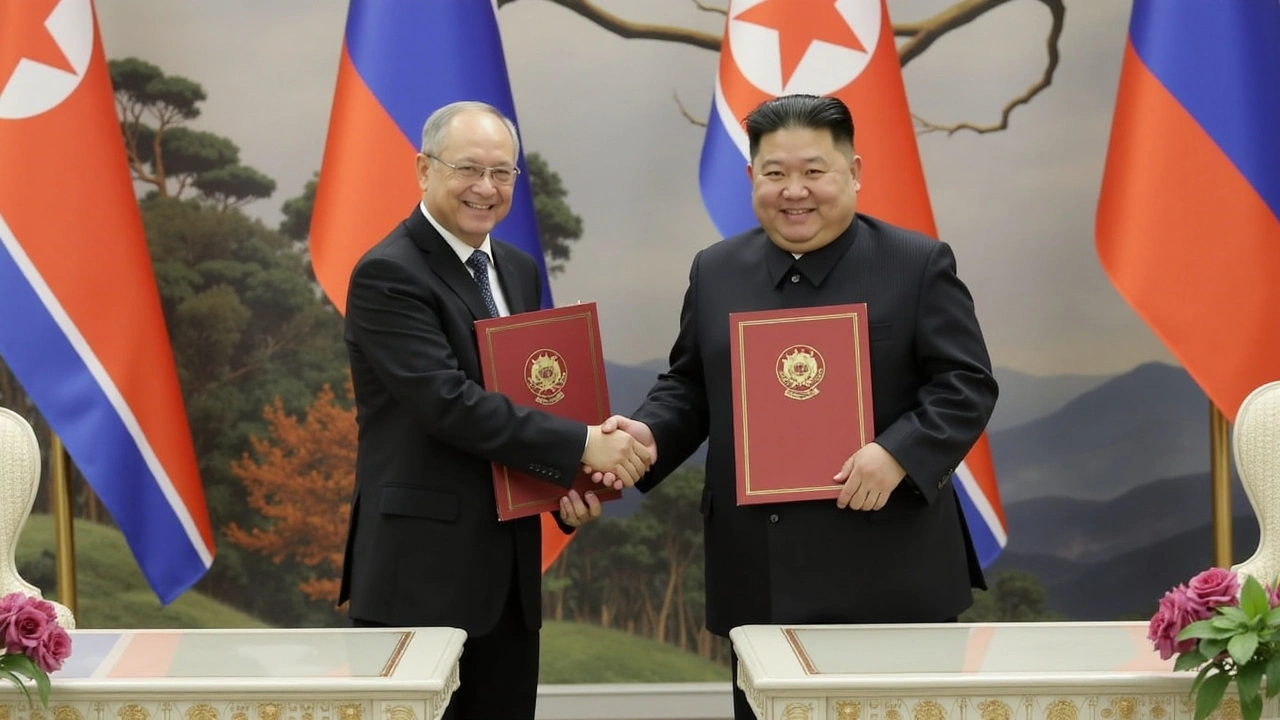
A Strategic Defense Pact and Its Implications
In September 2023, a defense agreement was formalized between North Korea and Russia during Kim Jong Un's visit to Russia. This accord includes clauses for mutual cooperation in the event of an aggression against either nation, offering a framework for increased military transactions and collaboration. Analysts suggest that this pact has facilitated significant arms transfers from North Korea to Russia, which in turn may be exacerbating the humanitarian crisis and prolonging the conflict in Ukraine.
The Transactional Military Relationship
The burgeoning military relationship between Moscow and Pyongyang is perceived as largely transactional in nature. North Korea has reportedly been supplying artillery and ballistic missiles to Russia in exchange for valuable resources such as food, cash, and assistance in military technology development. This arrangement aligns with North Korea's strategic goal of being recognized on the global stage as a nuclear power, enabling its nuclear program to advance unimpeded.
Responses from Ukraine and Allied Nations
Ukrainian military intelligence has successfully executed operations targeting Russian arms depots that contained munitions supplied by North Korea. These strategic maneuvers aim to create logistical challenges for Russian forces, thereby diminishing their offensive capabilities. The actions of the U.S., Ukraine, and South Korea in condemning the escalating partnership between North Korea and Russia reflect an urgent call for enhanced military support for Ukraine and a unified international response.
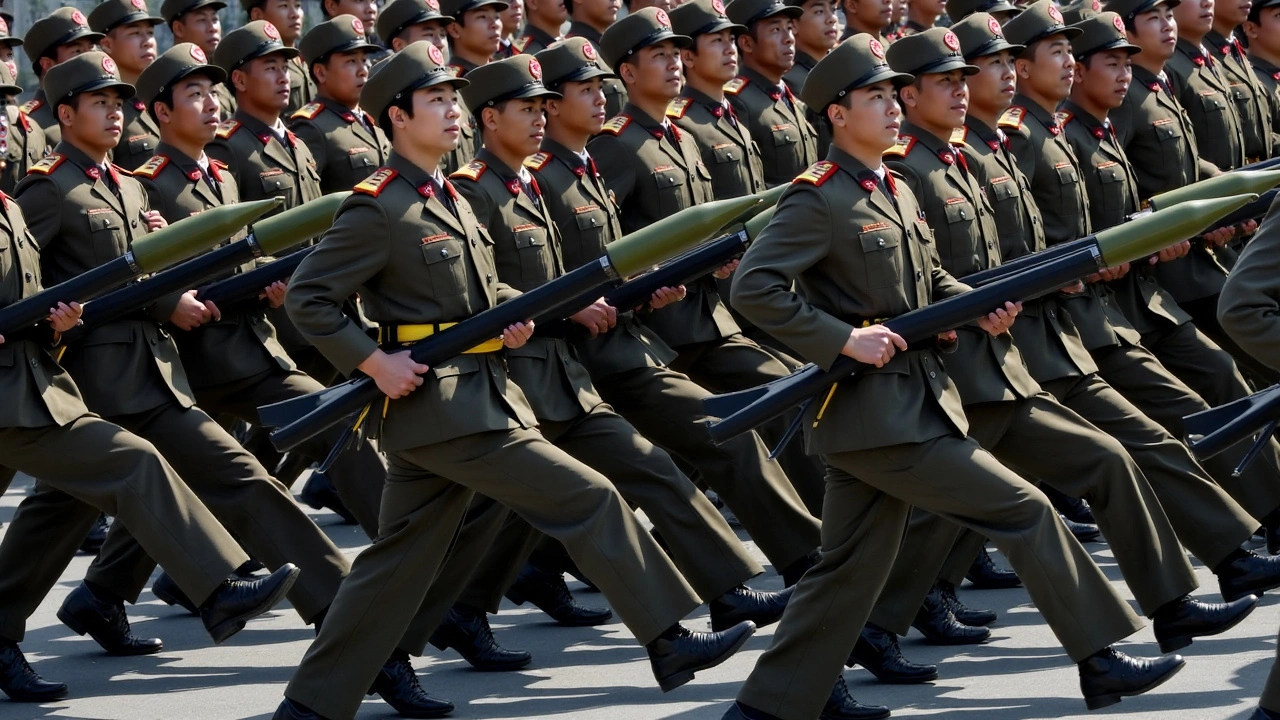
A Call for Diplomatic and Strategic Initiatives
President Zelensky has urged allied nations to bolster their support for Ukraine, with specific emphasis on lifting restrictions related to long-range missile usage, which could enable deeper strikes within Russian territory. Such strategic decisions underline an urgent need for comprehensive diplomatic initiatives to de-escalate violence and critically reassess international strategies in response to the evolving conflict.
Conclusion: Navigating a Complex Global Landscape
The prospect of North Korean troops actively engaging in the Ukraine-Russia conflict highlights a complex intertwining of global political dynamics. As the world watches, the roles of various international players in this conflict, including North Korea’s increasing involvement with Russia, raise critical questions about future geopolitical stability. Global leaders are faced with prioritizing diplomatic efforts, increasing support for Ukraine, and ensuring that these developments do not set a precedent for similar alliances elsewhere. The situation remains fluid, with continuous monitoring and strategic evaluation required to navigate these multifaceted challenges.

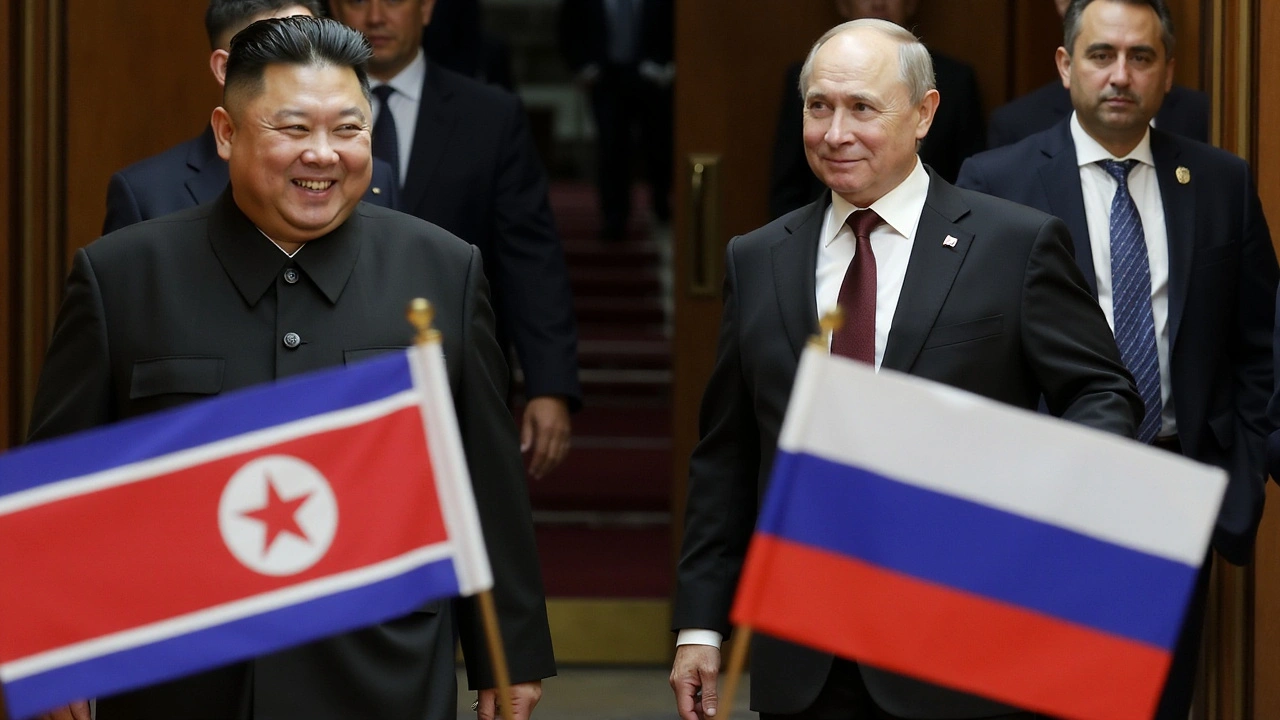
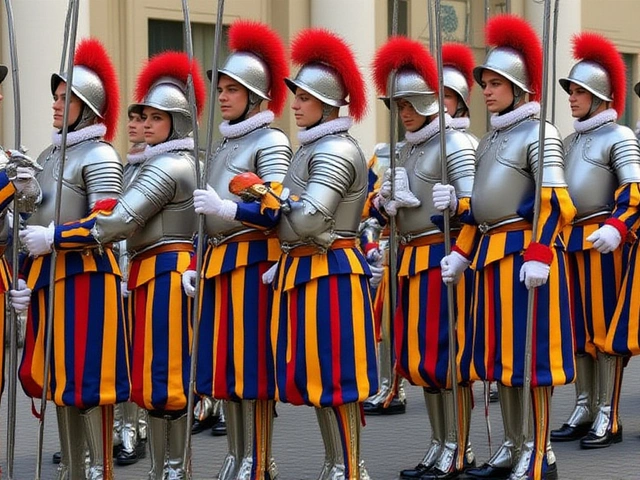
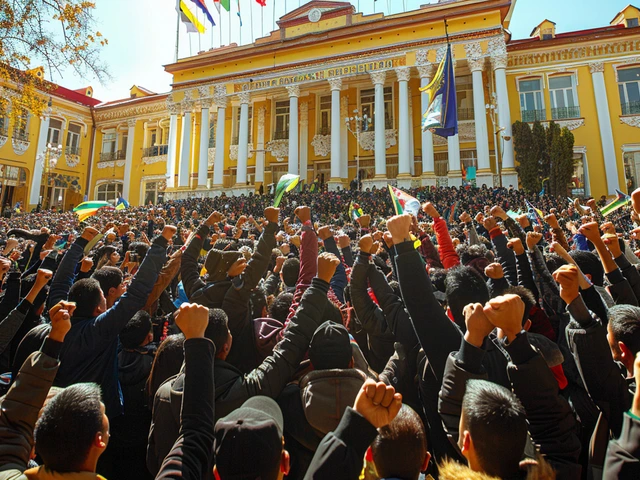
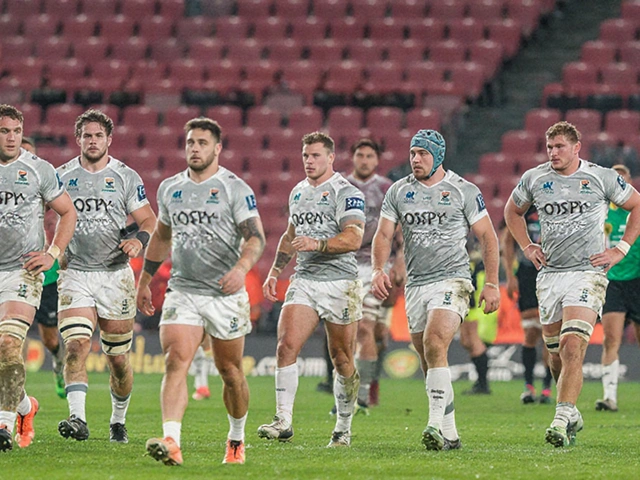
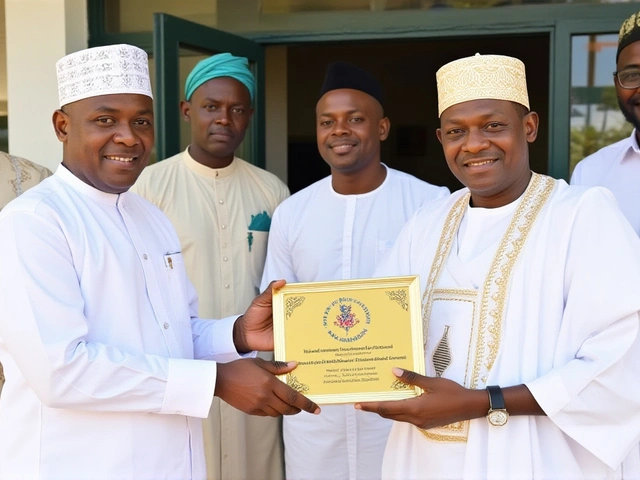
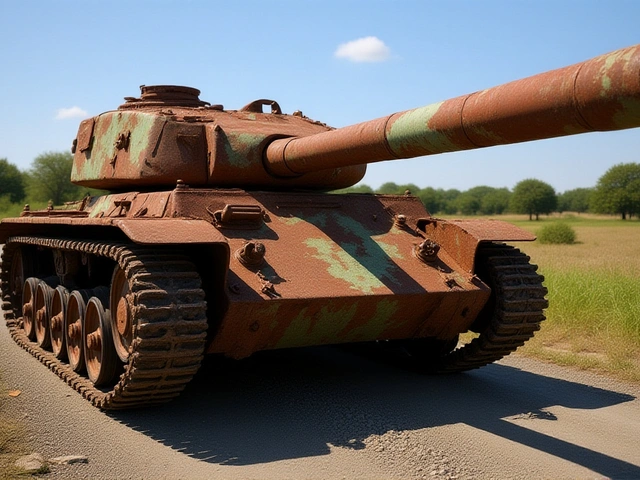
Angela Arribas
There's nothing morally defensible about North Korea supplying troops to a war that devastates civilians 😊. It's a disgraceful display of opportunism.
Sienna Ficken
Ah, the ever‑mysterious dance of geopolitics, where you’ll find Pyongyang tip‑toeing into the muddy trenches of Ukraine like it’s a casual weekend getaway. The sheer audacity of a regime that hoards propaganda yet suddenly decides to audition for a war movie is, frankly, a theatrical masterpiece. They’re not just shipping artillery; they're delivering a masterclass in how to turn diplomatic anonymity into headline fodder. One could almost admire the choreography of this clandestine ballet, if it weren’t for the blood‑spattered floor. The optics? Imagine a secret handshake between two pariahs, each hoping the other will pick up the tab for a lavish banquet of sanctions. And let's not forget the irony: a nation starved for resources trading men for ammunition while the rest of us are still debating who stole the last slice of pizza at the UN cafeteria. The United Nations, bless its soul, is left flipping through diplomatic manuals, trying to figure out if this counts as a "peace‑keeping" operation. Meanwhile, ordinary Ukrainians are stuck dodging artillery fire that may have been engineered in a far‑off bunker with a view of the Sea of Japan. It's a reminder that in the grand chessboard of international intrigue, pawns sometimes become knights, but only if they’re willing to get dirty. So raise your glasses, dear readers, to the latest episode of "Who Sends Who?" – a saga that’s as baffling as it is terrifying.
Zac Death
Wow, folks, this whole situation feels like a tangled rope of policy, history, and raw human courage winding together in a messy knot. I'm really hoping that whatever strategic calculus Moscow and Pyongyang are pulling off doesn't end up costing more innocent lives than we can bear. It's important we keep cool heads while still holding firm to the principle that no nation should be a pawn in another's war. Let’s remember that every soldier, no matter where they hail from, carries a story and a family waiting back home. If we can channel that empathy into a push for diplomatic solutions, maybe we can steer this conflict away from an endless spiral. So keep talking, keep sharing, keep being that voice that says, "enough is enough". Together we can demand better, push for peace, and maybe even spark a dialog that ends these needless deployments. Stay hopeful, stay loud, and keep the morale up – we’ve got this! 🌍
Lizzie Fournier
While the headlines scream alarm bells, it's crucial we also recognize the broader context. North Korea’s involvement may be a signal to the world about shifting alliances, yet it also underscores the fragility of regional stability. We should encourage transparent dialogue, not just condemn from afar.
JAN SAE
Wow, the strategic calculus here-it's practically a textbook case of asymmetric warfare, where each side, leveraging resources, compensates for glaring gaps, and-oh!-the implications for regional power dynamics are simply massive, as policymakers scramble to re‑evaluate threat assessments, while analysts pore over satellite imagery, and-yeah-it’s a real mess, but fascinating nonetheless.
Steve Dunkerley
From a security‑studies perspective, the deployment of North Korean forces adds a layer of complexity to the conflict zone, introducing variables that affect both operational tempo and logistical planning. The presence of foreign combatants necessitates recalibrated intelligence‑fusion protocols, as well as updated rules of engagement that account for the distinct doctrinal approaches of the actors involved.
Jasmine Hinds
North Korea shows up, boom! 🤯
Madison Neal
It's disheartening to see yet another escalation that drags more people into the vortex of conflict, especially when diplomatic avenues appear underutilized. Every additional combatant increases the risk of unintended consequences.
John Crulz
Really interesting how these alliances form, especially when both parties seem to have something to gain beyond the battlefield, like technology swaps and economic relief.
Anita Drake
Indeed, the cultural and historical ties between the two nations are being re‑examined in light of current events, offering a nuanced perspective that goes beyond mere military calculations.
Eduardo Lopez
Honestly, the world should be outraged-this is a blatant betrayal of all decent human values, and yet we watch with déjà vu as if this were normal. The drama of geopolitics should never eclipse the morality of actions. 😤
Nancy Perez de Lezama
Such conduct is plainly unacceptable. Nations should not be trading soldiers like commodities.
Matt Heitz
The fact that a regime already flouting international norms would dare to insert troops into a foreign war is a stark reminder that the battle lines are being redrawn, and it's a warning to all who value sovereignty.
Susan Mark
Let's keep the conversation focused on how we can foster peace efforts and support those affected on the ground.
Jason Jennings
Another day, another conflict, and we’re still talking about it like it’s just background noise. Get us some real solutions, already.
Diego Vargas
Honestly, i think people dont realize how complex this is but it’s pretty clear that all sides are playing a dangerous game.
Alex Lee
North Korean troops in Ukraine? That’s just lame propaganda.